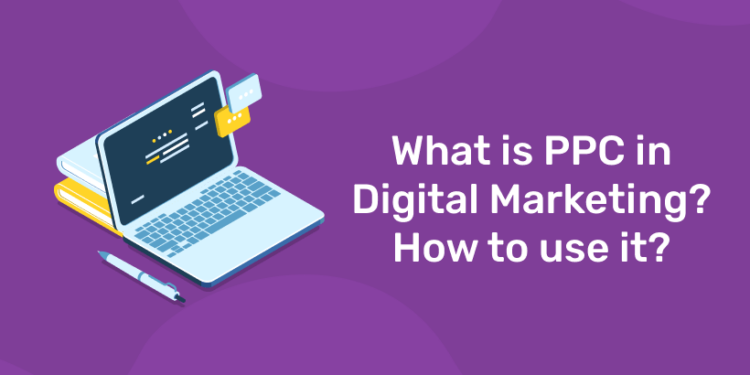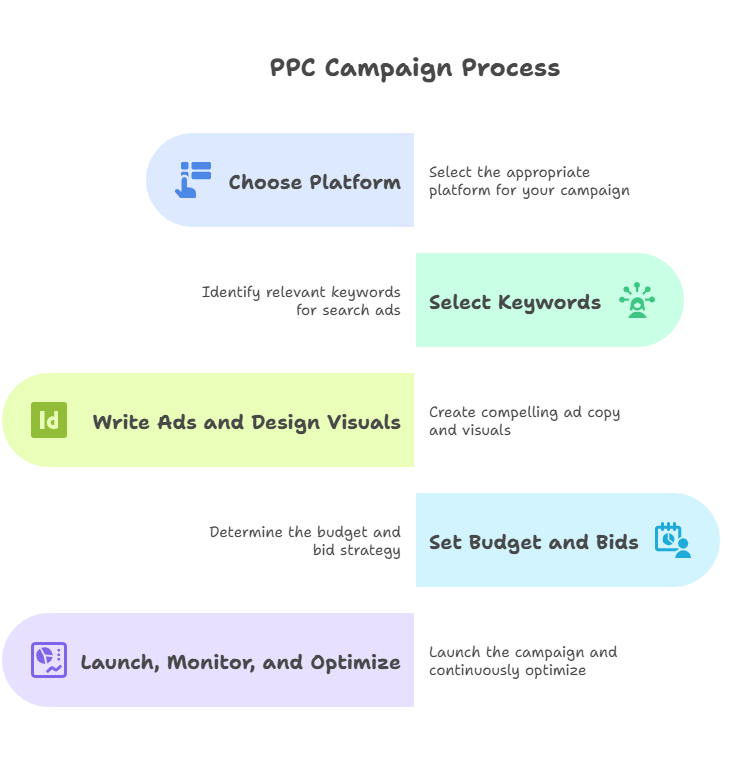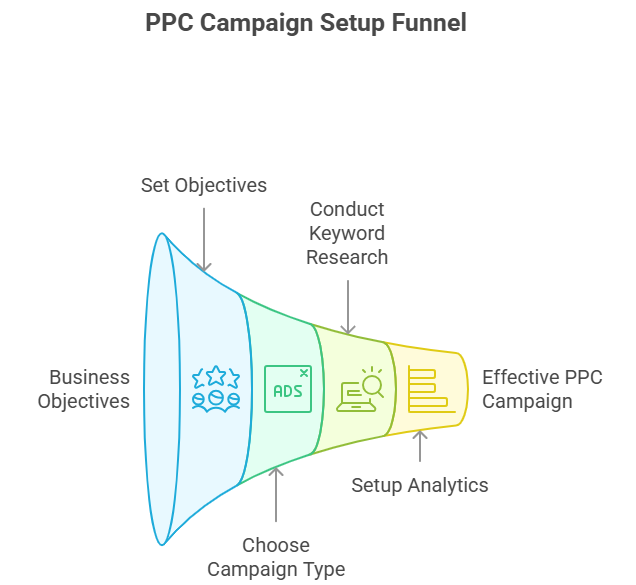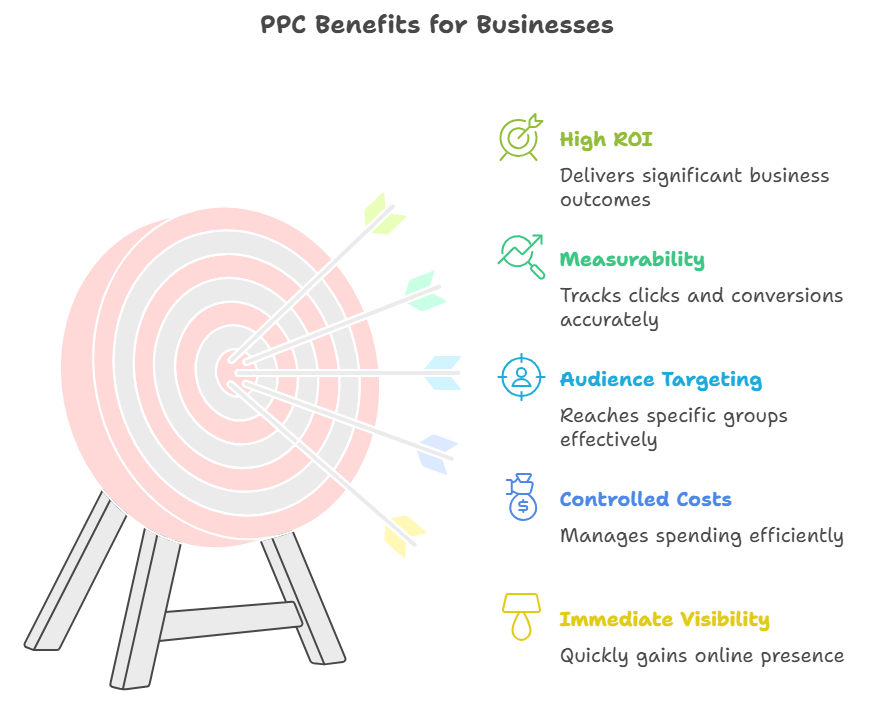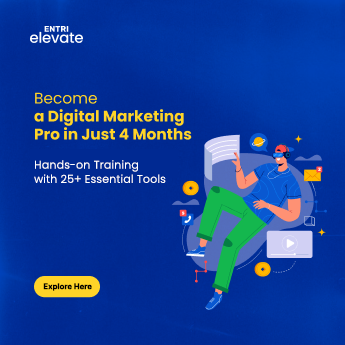Table of Contents
If you’ve Googled something and viewed the ads at the top, or encountered a sponsored post on IG, Facebook or YouTube, you’ve been exposed to PPC. PPC is the most direct and measurable of the digital marketing disciplines, enabling brands to place their message in front of the right audience at the right time.
PPC is even more exact and data-driven, and competitive in 2025. Worldwide ad spend on search alone will exceed $350 billion this year, as firms spend more on clever targeting, automation, and creative formats to secure each click. This guide will demystify what PPC is, how it works, and how to use it with industry best practices and the latest trends for businesses worldwide.
What is PPC in Digital Marketing?
When a user enters a specific set of keywords or phrase(s) into the search engine, your website will show on the SERP as a result of pay-per-click (PPC) advertising. Your website will display the adverts you create to attract visitors, and you will only be charged when a user clicks on one of them.
If PPC is used correctly, it can produce excellent leads for you. Your PPC investment can yield a sizable return with an ideal user experience. The most prevalent place to find pay-per-click advertising is on the sites of search engines like Google or Bing, but it can also be found on social media (although CPM is more common). The key components of a PPC campaign, from the most general to the most targeted, are listed below.
-
CPC
The amount that an advertiser pays for each click on your ad is known as the cost-per-click (CPC). In an auction that chooses where your ad will be displayed, CPC serves as your bid. As you may expect, greater ad placement results from a bigger bid.
-
Ad Rank
The position of an advertisement on a search engine results page is determined by this value. It’s equivalent to Quality Score x Maximum Bid.
-
Maximum Bid
This is the most you’re willing to spend on each click on your advertisement. You have the option of setting your CPC to the manual, in which case you select the maximum bid for your advertisements, or enhanced, in which case the search engines will modify your bid following your objectives. Bid strategies that automatically modify your offers based on clicks or conversions are one of these improved possibilities.
-
Quality Score
This is the rating that search engines assign to your ad based on your clickthrough rate (CTR), which is compared to the industry average for advertising in that position, the applicability of your keywords, the caliber of your landing page, and your prior SERP performance.
-
SEM
Ranking for a target keyword is the goal of all digital advertising, and you can do this in a few different methods. Any digital marketing, whether paid or unpaid, carried out on a search engine like Google, Yahoo, or Bing is referred to as “search engine marketing” (SEM). SEM is a catch-all phrase that refers to both paid advertising and SEO, or naturally rising in search results. It’s crucial to remember that PPC doesn’t just happen on search engines; it also happens on social media (think: Facebook Ads).
-
Ad Group
No one size fits everyone. Because of this, you’ll develop several ads as part of your campaign using a group of closely linked keywords. Each ad group you make can have a CPC that you specify.
-
Ad Text
Your ad text should be influenced by your keywords. The wording of your advertisement (and landing page, for that matter) should match the keyword terms you are targeting because your Quality Score is based on how relevant your advertisement is.
-
Keywords
Each ad in your ad group will focus on a certain set of pertinent keywords or keywords. These keywords inform search engines of the terms or searches that you want your ad to appear next to in SERPs. You can precisely set a micro CPC for keywords within your advertising once you’ve established which keywords perform the best.
-
Landing Page
An essential component of your paid advertising campaign is a landing page. Once they click on your PPC ad, users will land on the landing page. To increase conversions, make sure to adhere to standard practices for landing pages wherever you place them, whether it’s a specific page, your homepage, or another location.
Learn Digital Marketing course in kerala! Get Free Demo Here!
How Does PPC Work?
1: What is the primary goal of SEO (Search Engine Optimization)?
Here’s a simple overview:
-
Choose your platform: Google Ads dominates, but Bing, Facebook/Meta, LinkedIn, Instagram, and TikTok all offer PPC options based on your goals and audience.
-
Select keywords (search PPC): For search ads, pick keywords people are likely to use when looking for your product or service. Bid on these to compete for ad placement.
-
Write ads and design visuals: Create compelling copy and choose strong images or videos. Each ad leads to a landing page relevant to the promise in your ad.
-
Set your budget and bids: You can decide how much to spend per day/campaign and how much you’re willing to pay per click.
-
Launch, monitor, and optimize: See what’s working by tracking clicks, conversions, and costs. Pause poor performers, test new angles, and adjust bids as needed.
Become an AI-powered Digital Marketing Expert
Master AI-Driven Digital Marketing: Learn Core Skills and Tools to Lead the Industry!
Explore CourseHow to use PPC?
A pay-per-click campaign’s goal is to “purchase visitors” for a certain website. The goal is to encourage a particular kind of user activity, like signing up or making a purchase. PPC advertising can help you increase brand recognition. However, pay-per-click marketing works best when you want to compel clients to act right away. Let us see the steps involved in using PPC.
1. Place Limits
Your advertising initiatives should be considered in light of your long-term corporate objectives. Think about how your bought campaigns will help you achieve those objectives. Next, consider what you want your advertising to achieve, such as visits, sales, brand awareness, or anything else, as well as how much you’re willing to pay to get there. Who you intend to target, the theme of your campaign, how you want to gauge success, and the type of campaign you’ll conduct should all be included in your ads.
2. Set objectives and goal metrics.
As long as you decide how you will measure those goals, your campaign goals will enable you to demonstrate the value of your advertising investment. You shouldn’t mix up your campaign metrics with your target metrics. Some typical PPC objectives include:
- Brand Awareness
- Lead Generation
- Offer Promotion
- Sales
- Site Traffic
3. Select the Type of Campaign
Not only must you decide where to advertise, but also how. The type of paid advertising campaign you choose will depend on where you can reach your target demographic. That’s not to imply you can’t use other methods of advertising; you can also try a variety of campaign kinds as long as you’re continually testing and updating.
4. Carry out a keyword search
Search engines use the collection of keywords you assign to each ad group you create to determine when and where to display your advertisement. The usual rule of thumb is to choose one to five keywords per ad group, and those keywords need to be very relevant to improve your Quality Score. Choose keywords that are quite similar to the theme of your ad group. You should make a new ad group for any terms you want to target that don’t fit into a certain subject.
5. Setup and Track Google Analytics
There is no reason not to install Google Analytics on your website since it is free to use. The program gives you information about how well your website is doing, how visitors engage with your pages, and what kind of material draws them in. Google Analytics data can be utilized for PPC and other purposes.
Why Use PPC? The Value in 2025
-
Immediate visibility: New businesses can leapfrog organic rankings and appear in front of thousands instantly.
-
Controlled costs: Set limits so you never overspend, and pay only when ads are clicked.
-
Audience targeting: Use demographics, geography, behaviors, and devices to reach precise groups.
-
Measurability: Every click and conversion can be tracked—no need for guesswork.
-
High ROI: Well-managed campaigns deliver sales, leads, bookings, and other actions that matter to your business.
Conclusion
PPC in 2025 revolves around relevance, precision, and efficiency. When deployed intelligently, it’s among the most intelligent levers to spark business growth, providing demonstrable ROI, tangible results, and the agility to respond to trends and consumer behaviors. Sweat your vision, sweat the small, sweat privacy and local norms, and always sweat test.
As competition intensifies and costs escalate, what distinguishes the victors is not just a larger budget – it’s a smarter strategy, smarter creative, and the commitment to continue learning with every click.
Unlock the power of PPC and digital marketing with our Best digital marketing Course with Placement! Learn how to design, implement, and optimize high-performing PPC campaigns that give you a competitive edge, drive traffic, and boost conversions.
Frequently Asked Questions
What does PPC mean in digital marketing?
PPC stands for Pay-Per-Click, a form of online advertising where advertisers pay a fee each time someone clicks their ad.
How does PPC advertising work?
Advertisers bid on selected keywords or audience segments; when someone clicks the ad, the advertiser is charged, and the visitor is directed to a landing page or site.
What platforms support PPC campaigns?
Google Ads, Bing Ads, Facebook/Instagram, LinkedIn, Twitter (X), TikTok, and YouTube all offer PPC ad options.
Why should businesses use PPC in 2025?
PPC offers immediate visibility, detailed targeting, budget control, and measurable returns on investment, ideal for businesses of all sizes.
What does geo-targeting mean in PPC?
Geo-targeting allows you to show ads only to users in specific regions, making local and regional campaigns far more effective and cost-efficient.
How much should I budget for PPC ads?
Budgets vary, but PPC is flexible, start small, analyze performance, and scale up winning campaigns. Many successful campaigns begin with a few hundred rupees (or dollars) a day.
What are the most important metrics to track in PPC campaigns?
Focus on Click-Through Rate (CTR), Cost Per Click (CPC), Conversion Rate, Quality Score, and Return on Ad Spend (ROAS).
How do I optimize my PPC ads for better results?
Write clear, relevant copy; use strong calls-to-action; test visuals and headlines; match landing pages to ad messages; monitor and adjust based on data.


